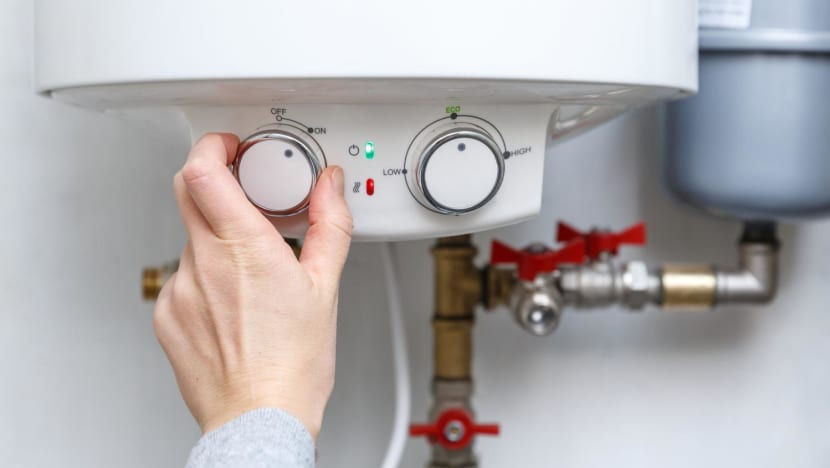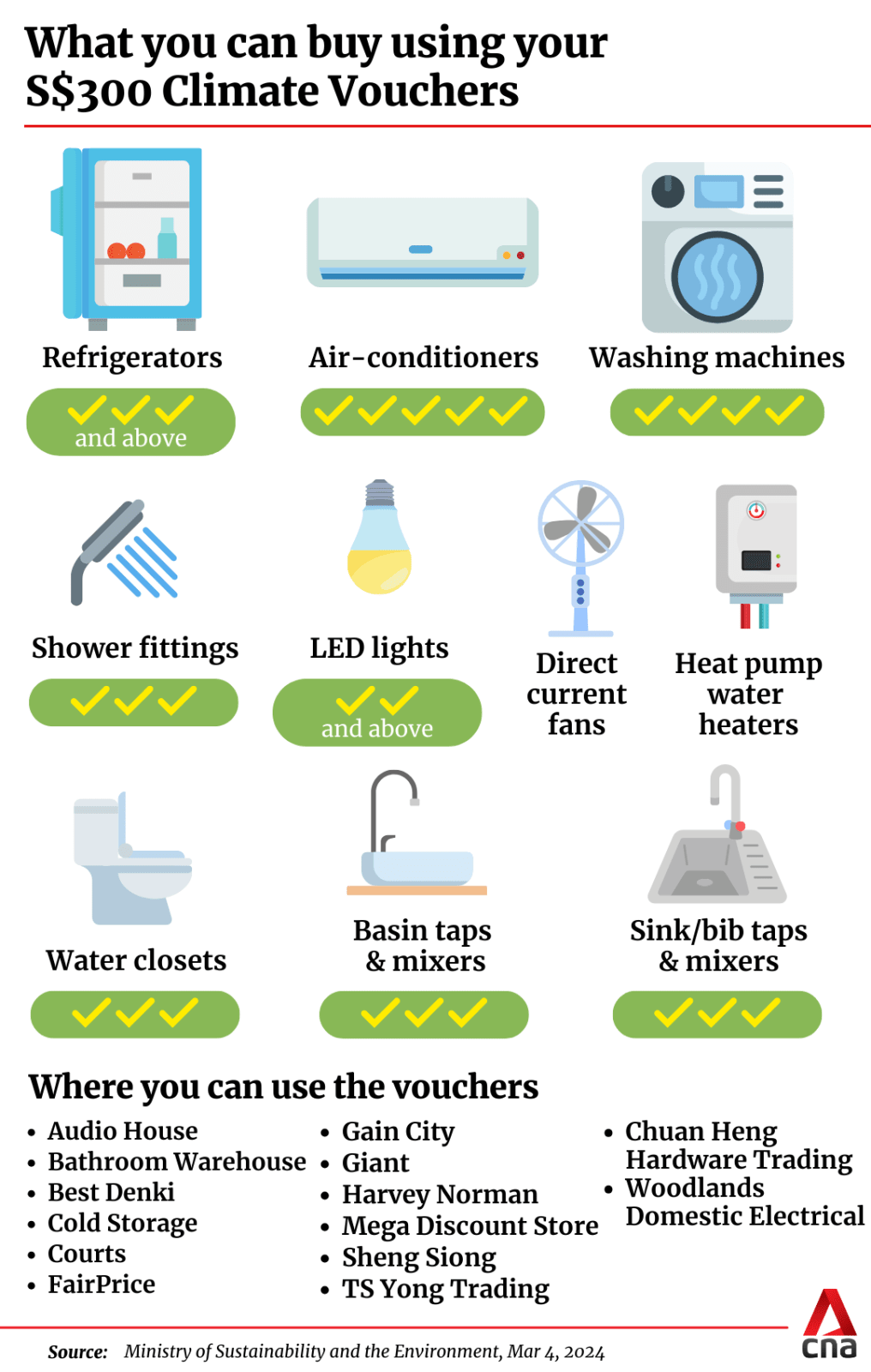All HDB households to get S$300 in Climate Vouchers to buy energy- and water-efficient appliances
The vouchers will be valid from Apr 15 this year until the end of December 2027.


This audio is generated by an AI tool.
SINGAPORE: Families living in Housing Board (HDB) flats will receive S$300 (US$223) in Climate Vouchers to purchase more efficient appliances, said Senior Minister of State for Sustainability and the Environment Amy Khor on Monday (Mar 4).
The vouchers are part of the enhanced Climate Friendly Households Programme and come after an initial set of vouchers was given to households in smaller flats.
"With these enhancements, we hope to incentivise more households to choose resource-efficient options from the outset, or when their appliances and fittings are due for replacement," Dr Khor said in parliament during her ministry's budget debate.
The new e-vouchers will be available to all 1.1 million HDB households from Apr 15 this year until Dec 31, 2027. They will come in a mix of denominations and can be used to buy 10 types of energy- and water-efficient household products.
New products – such as direct current fans, washing machines, air-conditioners and heat pump water heaters – have been added to the mix.

HDB households consisting of Singaporeans and permanent residents can claim their Climate Vouchers online at RedeemSG with their Singpass accounts from Apr 15.
Those who require assistance can contact the National Environment Agency (NEA) through its hotline, Dr Khor said. To redeem the vouchers, customers have to provide proof of address at participating retail outlets.
Participating retailers include Audio House, Bathroom Warehouse, Best Denki, Chuan Heng Hardware Trading, Courts, FairPrice, Gain City, Harvey Norman, Mega Discount Store, Sheng Siong and TS Yong Trading.
New retailers that have joined the scheme this year include Giant, Cold Storage and Woodlands Domestic Electrical, taking the total number of participating retailers to 14. Together, they have around 300 stores islandwide.
"By switching to more efficient appliances and fittings, households can reduce their energy (and) water consumption, lower their utility bills, reduce greenhouse gas emissions and play their part in slowing down climate change," the Ministry of Sustainability and the Environment said in a joint press release with NEA and national water agency PUB.
The first round of the Climate Vouchers was given out in 2020 to households in one-, two- and three-room HDB flats.
Worth S$225, the vouchers comprised S$150 for refrigerators, S$50 for shower fittings and S$25 for LED lights. These were valid from Nov 28, 2020, and will remain so until Mar 20 this year.
As of January, more than 141,000 households out of more than 300,000 had registered for the first round of vouchers. Around 54,000 vouchers have been used, according to Dr Khor.
The authorities attributed the slow take-up rate to households deciding when to replace their appliances.
They added that the 10 product types chosen for the enhanced programme take up 60 per cent of an average household's electricity consumption, and around 90 per cent of water consumption.
MORE ENERGY-EFFICIENT APPLIANCES FOR HOMES AND BUSINESSES
The Mandatory Energy Labelling Scheme and Minimum Energy Performance Standards will also be extended to household water heaters and commercial refrigerators from Apr 1, 2025.
NEA will develop minimum energy standards to phase out the least energy-efficient water heaters and commercial fridges, and introduce an energy label with a five-tick rating scale for both appliances.
The Mandatory Energy Labelling Scheme was implemented in 2008 and the Minimum Energy Performance Standards in 2011 – starting with air-conditioners and refrigerators – to improve the energy efficiency of home and commercial appliances.
Dr Khor said the average energy efficiency of household air-conditioners and refrigerators has improved by 59 per cent and 42 per cent respectively since the introduction of the schemes.
"This is equivalent to the annual energy consumption of about 405,000 four-room housing units, and translates to annual overall household energy savings of more than S$500 million," said Dr Khor.
The regulations have been extended to water heaters as they are the third most energy-intensive appliances in households after air-conditioners and refrigerators, NEA said. Water heaters use about 10 per cent of a typical household's energy.
"There are more energy-efficient options, such as instantaneous water heaters, which on average consume about 50 per cent less electricity than electric storage water heaters. This enables homeowners to save on energy bills," said Dr Khor.
Consumers can save up to S$115 a year by switching from a one-tick water heater to a five-tick water heater, NEA said.
Similarly, commercial fridges in food establishments are among the most energy-intensive appliances in the kitchen.
Used in hawker centres, food courts and restaurants, these fridges can account for about one-third of hawkers' electricity usage, said Dr Khor.
















